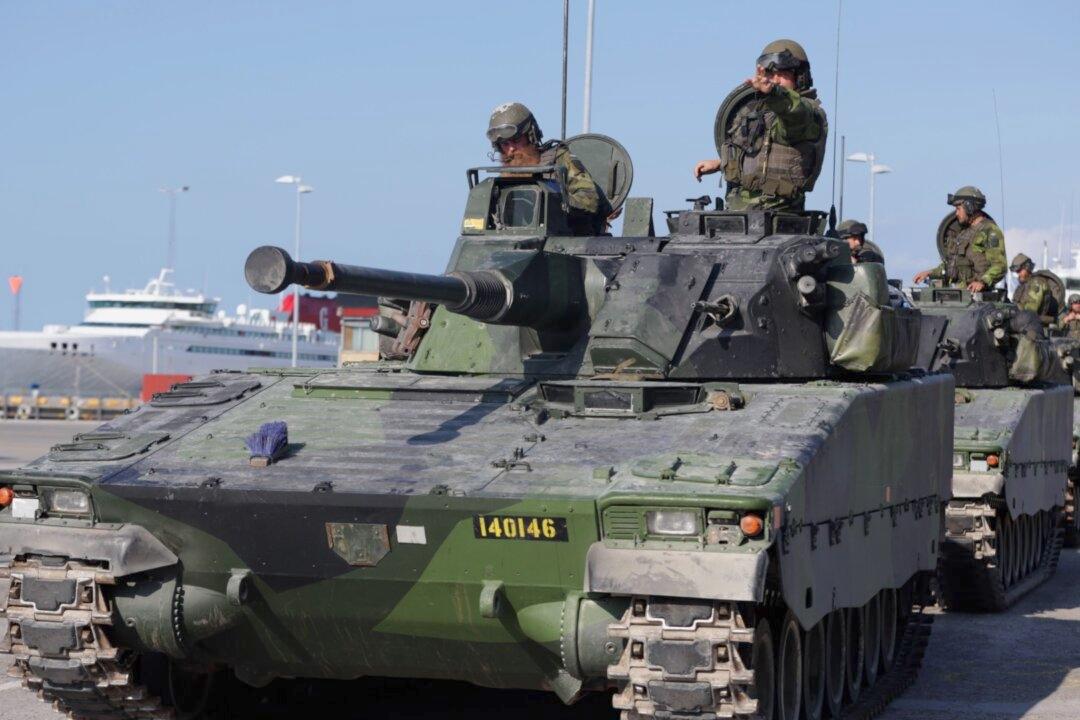The Swedish government on Friday announced plans to allocate more than $160 million to further increase its military capabilities on a strategically important island in the Baltic Sea amid security threats from Russia over its likely NATO membership.
Max Elger, the country’s minister for financial markets, told reporters the extra budget is to expand several military infrastructures on Gotland, Sweden’s biggest island.





